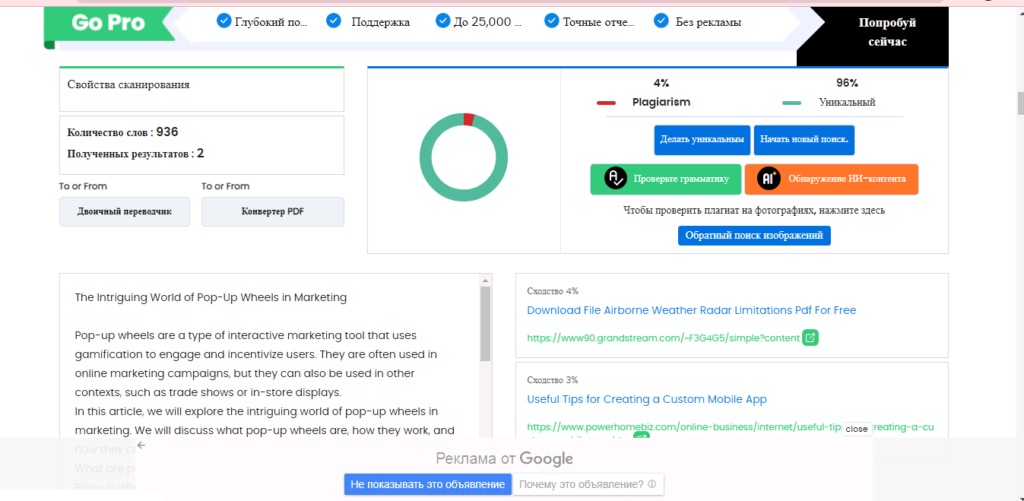Pop-up wheels serve as an interactive marketing tool, employing gamification to engage and incentivize users. They are frequently employed in online marketing campaigns, and their versatility extends to other contexts like trade shows or in-store displays.
In this article, we will explore the intriguing world of pop-up wheels in marketing. We will discuss what a pop up wheel is, how it works, and how it can be used to achieve marketing goals.
Table of Contents
What are Pop-up Wheels?
Pop-up wheels are essentially a digital version of a spinning wheel. They typically feature a variety of prizes or rewards, and users can spin the wheel to win a prize.
Pop-up wheels effectively promote a variety of products or services, serving purposes such as lead generation, sales boosts, or simply engaging and entertaining users.
How do Pop-up Wheels Work?
A JavaScript library typically powers pop-up wheels. This library allows the wheel to spin and display the prizes or rewards.
Users can spin the wheel by clicking or using their mouse. When the wheel stops spinning, the user wins the prize that is displayed in the winning section of the wheel.
How Can Pop-up Wheels Be Used in Marketing?
Here are a few examples:
- Lead generation. Pop-up wheels collect leads by prompting users to share their contact information in exchange for spinning the wheel.
- Sales promotion. Pop-up wheels promote sales through enticing offers like discounts or free products and services.
- Brand awareness. Pop-up wheels raise brand awareness by engaging and entertaining users.
Here are a few instances demonstrating how pop-up wheels have found application in marketing efforts:
- In 2022, Amazon’s online retail platform employed a pop-up wheel to highlight its Prime Day sale. The wheel presented a range of prizes, such as complimentary shipping, gift cards, and product discounts.
- In 2023, the fast-food giant McDonald’s utilized a pop-up wheel to showcase its latest Happy Meal toys. The wheel featured a selection of toys, including exclusive ones that could only be obtained through the pop-up wheel.
- In 2024, Expedia’s travel website featured a pop-up wheel to showcase its summer vacation offers. The wheel presented various deals, including flight discounts, accommodations, and car rentals.
Benefits of using pop-up wheels in marketing
- Engagement. Pop-up wheels are a fun and engaging way to interact with users.
- Lead generation. Pop-up wheels collect leads by prompting users to share their contact information in exchange for the chance to spin the wheel.
- Sales promotion. Pop-up wheels drive sales by enticing customers with discounts or free products and services.
- Brand awareness. Pop-up wheels elevate brand awareness through engaging and entertaining user interactions.
Drawbacks of Using Pop-up Wheels in Marketing
Like any marketing tool, pop-up wheels have some potential drawbacks. Here are a few of the most notable ones:
- Ad blockers. Pop-up wheels can be blocked by ad blockers.
- User annoyance. Pop-up wheels can be annoying to users if they are used too often or if they are not relevant to the user’s interests.
How to Use Pop-up Wheels Effectively
To use pop-up wheels effectively, it is important to consider the following factors:
- Target audience. Pop-up wheels should be targeted at the right audience. If the pop-up wheel is irrelevant to the user’s interests, it will likely be ignored or even annoying.
- Timing. Pop-up wheels should be displayed at the right time. If the pop-up wheel is displayed too early or too late, it is less likely to be effective.
- Design. Pop-up wheels should be well-designed. The wheel should be easy to use, and the prizes or rewards should be attractive.
Additional Tips for Using pop-up Wheels
- Make sure the prizes or rewards are appealing. Users are more likely to engage with a pop-up wheel if the prizes or rewards are something they actually want.
- Offer a variety of prizes or rewards. This will help to keep users engaged and coming back for more.
- Make the pop-up wheel easy to use. Users should be able to spin the wheel with just a few clicks.
- Use clear and concise language. Users should be able to understand what they need to do to participate in the pop-up wheel.
Pop-up wheels are a growing trend in marketing. As more and more businesses discover the benefits of using pop-up wheels, we can expect to see even more innovative and creative uses of this technology.
Here are some examples of how pop-up wheels are being used in innovative ways:
- Some businesses are using pop-up wheels to create interactive experiences. For example, a clothing retailer might create a pop-up wheel allowing users to virtually try different outfits.
- Other businesses are using pop-up wheels to personalize the user experience. For example, a travel website might create a pop-up wheel that offers personalized travel deals based on the user’s interests.
- Still, other businesses are using pop-up wheels to create social media engagement. For example, a food delivery service might create a pop-up wheel that allows users to share their food photos on social media.
Conclusion
Pop-up wheels are a versatile marketing tool that can be used to achieve various goals. When used effectively, it can help to engage users, generate leads, and increase sales.



